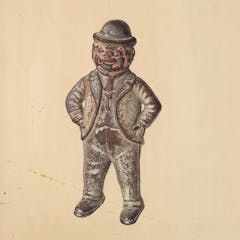
Articles on Linguistics
Displaying 1 - 20 of 359 articles

Although not a true sign language, the use of sign in Dune can still teach us a lesson about the value of sign language.

Tower Hamlets’ recognition of Cockney as a “community language” celebrates the role that all English dialects play in shaping individual and community identities.

For Australians, it’s a love story, so baby just say “yeah-nah”.

The history of the coastal communities of east Africa shows how ethnic groups and their languages were shaped.

‘Accentless’ spoken language is the language of the elite, of authority. It’s the version of the language that is used by the people who have traditionally held all the power.

‘Year’ and ‘time’ are the two most frequent nouns in British English.

Words have power, and what vocabulary you have at your disposal to describe your relationships with other people can shape what directions those relationships can take.

Research shows how the group once portrayed as a respected source of advice began to be seen by some outlets as a danger to young people.

Why do so many Americans share the concern that success and integrity are in conflict, as if one comes at the expense of the other?

While AI now allows us to erase accents, is this really a good idea? Besides, who doesn’t have an accent?

Pleasant-sounding words might have a leg up.

The language associated with drag culture has become mainstream and is now often considered part of the ‘internet vernacular’.

2023 will be remembered for more than quirky new phrases.

An expert on rhetoric explains why ‘rizz’ may be more like charm than charisma.

For many school children, Benjamin Zephaniah’s work will have been the first time they encountered published literature that talked about the things that mattered to them.

Translation involves more than just transferring words from one language to another. Better translations of study materials can improve both the diversity of study participants and research results.

Could Chomsky have foreseen where his contributions would lead us?

Innovations in AI seem to be spurring interest in what is or isn’t real, accurate and human.

The meanings we carry around in our heads seem so natural and inborn that we fail to realise other people can have quite different understandings.

Most people can draw from tens of thousands of words in their memory within milliseconds. Studying this process can improve language disorder treatment and appreciation of the gift of communication.
